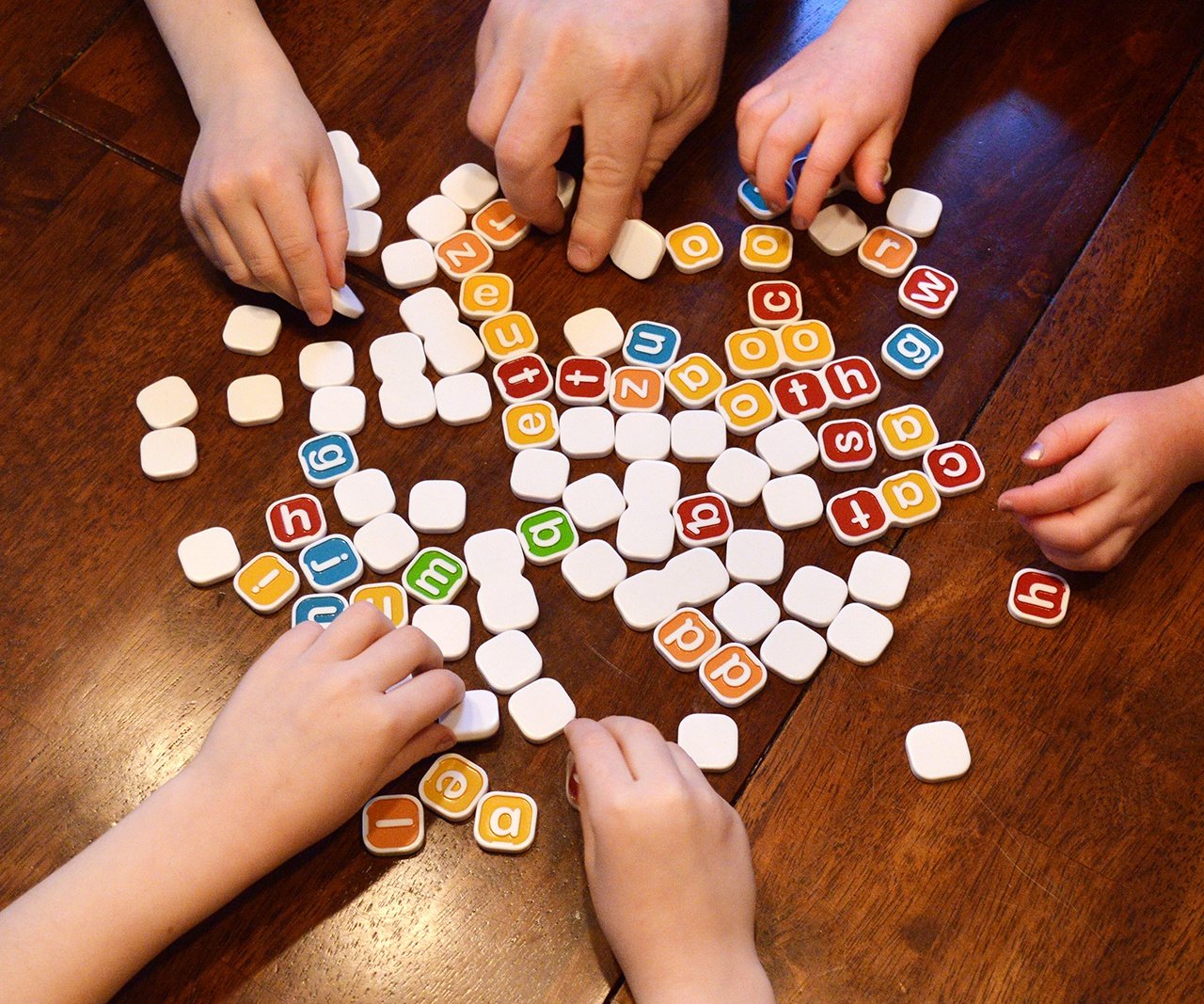Families today face the challenge of finding quality time together. Kids are getting older sooner and lifestyles get busier each day. Time is always limited. How then can you find time together as a family?
A game night can be a great way to interact with your family. More than this, playing games together can be a relaxed and fun way to build math and language skills.
Here are some tips for how to plan a successful family game night:
- Set a consistent day and time. You’ll need to schedule about an hour to an hour and a half. If every week is difficult, try twice a month to start. Mark it on a calendar and make it a priority.
- If you don’t already have games, purchase a few to get you started. Gradually add to the collection. Don’t forget, family game night can be a great way to foster or improve math, reading and writing skills. Choose games with this in mind.
- When game time approaches, give the kids a 30-minute reminder. This allows them the time to finish up what they are doing. You want to ensure that everyone comes to the table with a positive attitude, not feeling rushed.
- Do not allow interruptions or distractions. Turn off the TV and the cell phones. This will send a great message to your kids that they are your number one priority!
- Select games that everyone will enjoy. Often this is difficult if there is a large age difference between your children. Parents or older siblings can team up with the little ones or you can create a variation of a more challenging game.
- Designate a family member to be in charge of each game night. They pick the snack and game for the evening. This makes everyone feel like they are a part of planning the family event!
- The most important part of this evening is to HAVE FUN!
Setting aside time for the family gives children a sense of belonging.
This is the kind of quality time that happens when family members talk, listen and laugh. This sense of belonging and this kind of communication is crucial to growing children. The kind of quality time that happens when families eat together and play games together seems to be diminishing, partly because people don’t know how important it is, and partly because there are so many other options for family entertainment. Most of the new options for entertainment are not done as a group and it is the face-to-face interaction, laughter and fun that are missing. A FAMILY GAME NIGHT is relaxing and enjoyable, brings the family closer together, and also teachers children many essential school and life skills.
How Games Encourage Development:
Games can be an effective way to engage and develop children who have strengths and intelligences other than those traditionally associated with academic outcomes. Some of the most important life skills a child will learn comes from play. Games teach:
- Cooperation/Teamwork- Taking turns and working with others; respecting other family members including extended family.
- Responsibility- Playing by the rules; taking care of the materials and putting the game away so it’s ready to use next time.
- Perseverance and Patience- Waiting for your turn or for that “special card”.
- Honesty- Playing fair; being able to admit mistakes and learning from them.
- Understanding/Accepting Both Winning and Losing- Being able to cope with wins or loses tactfully and graciously.
What Makes a Great Family Game?
- Easy to Learn- People want to play right away, so be sure to pick games that are easy to learn and set up!
- Inclusive- People hate waiting, especially young children. Be sure to choose games that keep all players involved, even when it’s not their turn!
- Educational- games are a great way to make learning fun! Try games that require some reading, basic writing, or basic math skills.
BLOG FAQ
Planning a Successful Family Game Night
-
Why is family game night important? Family game night provides an opportunity for quality time together, fostering communication, laughter, and a sense of belonging among family members. It promotes face-to-face interaction, which is crucial for children's emotional development.
-
How can we schedule and prioritize family game night? Set a consistent day and time for family game night, scheduling about an hour to an hour and a half. Mark it on the calendar and make it a priority, even if it's twice a month to start. This consistency reinforces the importance of family time.
-
What are some tips for making family game night enjoyable and engaging? Start by purchasing a few games that cater to different ages and interests, gradually adding to the collection over time. Choose games that not only entertain but also foster math, reading, and writing skills. Minimize distractions by turning off TVs and cell phones, and give a 30-minute reminder before game time.
-
How can we ensure that family game night is inclusive and cooperative? Select games that everyone will enjoy, considering the age range of your children. Parents or older siblings can team up with younger ones, or you can modify rules to accommodate different skill levels. Designate a family member to be in charge of each game night, allowing everyone to feel involved in planning.
-
What developmental skills do games encourage in children? Games teach important life skills such as cooperation, responsibility, perseverance, honesty, and sportsmanship. They promote teamwork, problem-solving, and patience while offering opportunities for learning in reading, writing, and math in a fun and engaging way.
-






.png)

.png)